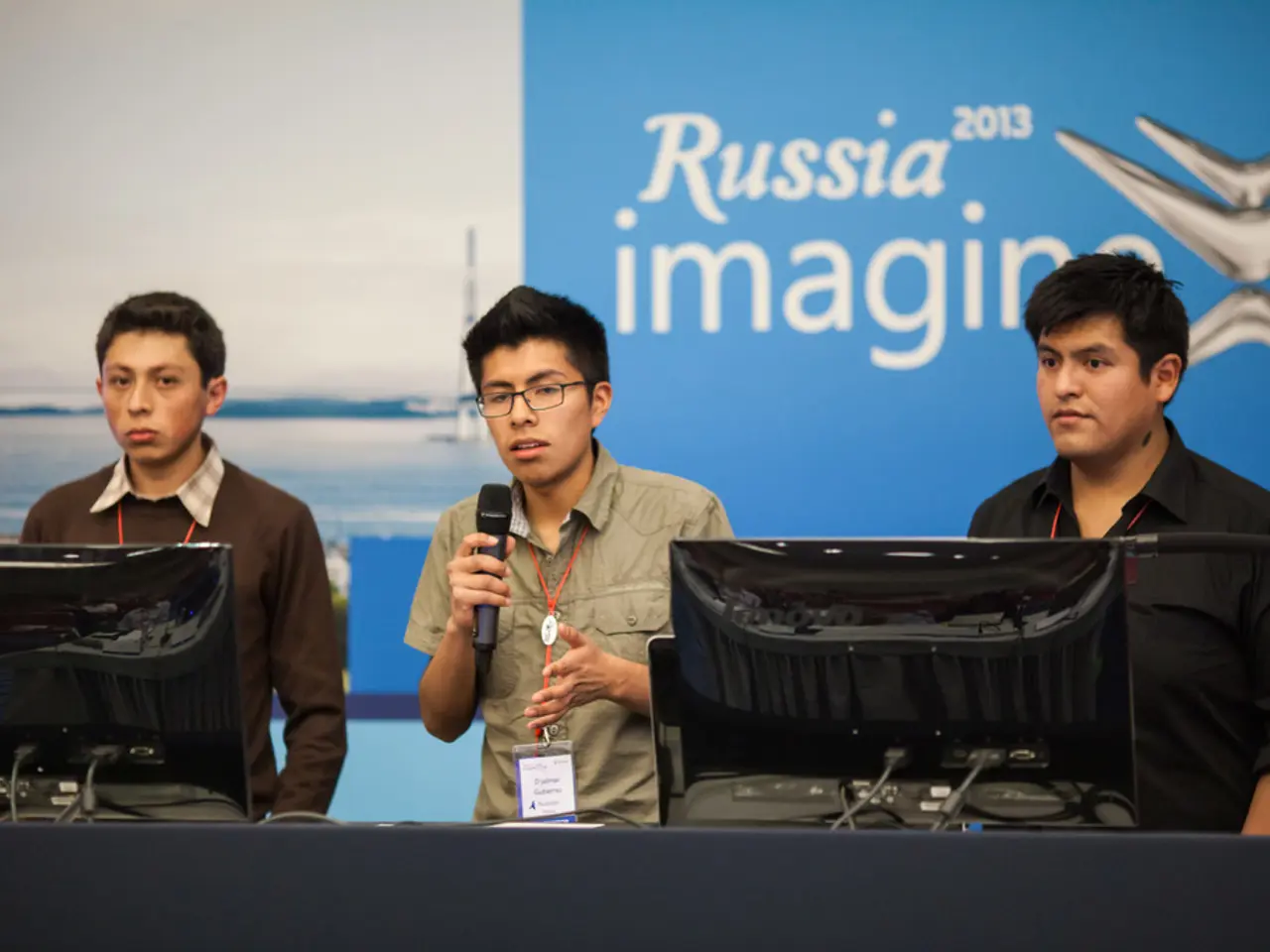Leaders Merz and von der Leyen express backing for Selenskyy amidst Trump's stance
In a significant development, Ukrainian President Volodymyr Zelensky met with US President Donald Trump in the White House on August 18, 2025. The meeting, which followed Trump's summit with Russian President Vladimir Putin in Alaska, aimed to discuss an end to the Russian war against Ukraine.
The EU Commission is currently preparing the 19th package of sanctions against Russia, reflecting the international community's continued pressure on Moscow. The sanctions are intended to encourage Russia to engage in genuine peace talks and withdraw from the Donbass region in eastern Ukraine, which Putin reportedly demanded be handed over to Russia during the summit.
However, Trump conceded to Putin's line by dropping his demand for a ceasefire during their talks, instead opting to discuss a peace agreement. This shift in stance was criticised by Ukrainian Foreign Minister Andrij Sybiha, who called on Europeans to exert more pressure on Moscow.
Chancellor Friedrich Merz, EU Commission President Ursula von der Leyen, and NATO Secretary General Mark Rutte accompanied Zelensky to the meeting, signalling Europe's commitment to a coordinated diplomatic and security approach. Other heads of state and government from Europe, including Emmanuel Macron, Keir Starmer, and Alexander Stubb, also participated in the meeting.
Europe plays a crucial role in influencing the outcomes of these negotiations. The Europeans want to prevent decisions that would be detrimental to Ukraine and are pushing for security guarantees and a ceasefire before further negotiations with Russia. The USA is ready to participate in these security guarantees for Ukraine, according to Merz.
The potential outcomes for Ukraine following the meeting include the pursuit of a just and lasting peace that safeguards Ukraine’s vital interests and European security. This peace may involve complex negotiations where Ukraine may need to make concessions such as ceding Crimea and agreeing not to join NATO, as part of a possible peace deal with Russia.
However, the peace process is delicate, requiring each side to give and take. Europe functions as a key partner in maintaining unity and providing the necessary resources to implement a sustainable agreement that includes reconstruction and possible Russian contributions. The Europeans are also balancing pressure on Russia through sanctions contingent on Moscow's willingness to engage in genuine peace talks.
In the aftermath of the meeting, the allies of Kyiv want to discuss further steps in the afternoon. The aim is to shape a negotiated peace deal backed by coordinated US-European political and military support, with Europe actively shaping security guarantees and sanctions regimes to influence Russia’s engagement and safeguard Ukraine's sovereignty.
Pope Leo XIV has also called for prayers for peace as the international community continues to work towards a resolution to the conflict in Ukraine.
The European Union Commission is preparing the 19th package of sanctions against Russia, reflecting the international community's ongoing policy-and-legislation aimed at pressuring Moscow regarding the war-and-conflicts in Ukraine. Politics surrounding the peace process are delicate, with the EU playing a crucial role in shaping negotiated general-news that safeguards Ukraine's vital interests and security.







